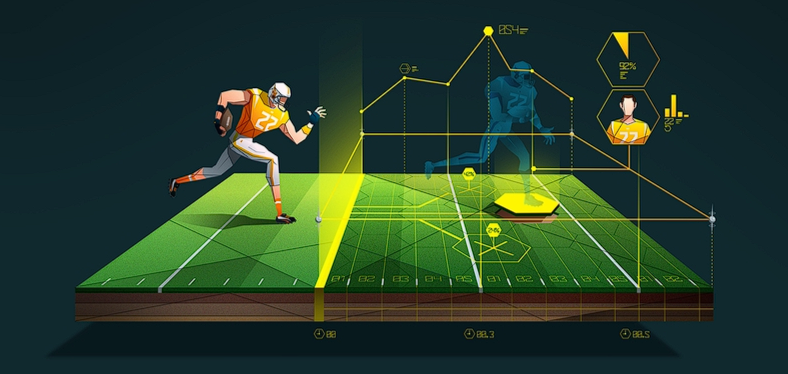Betting Analytics: The Next Big Thing

In the rapidly evolving world of sports betting, where data-driven decisions increasingly dominate, betting analytics is emerging as a critical tool for bettors looking to gain an edge. By leveraging sophisticated statistical techniques and advanced technologies, bettors can make more informed decisions, enhance their strategies, and ultimately increase their chances of success. This article explores the significance of betting analytics, its applications, tools available, and future potential in the sports betting industry.
Understanding Betting Analytics
What is Betting Analytics?
Betting analytics refers to the use of statistical methods and data analysis techniques to evaluate performance, assess outcomes, and inform betting decisions. It encompasses various metrics and models that provide insights into team performance, player statistics, and other factors that can influence the results of sporting events.
Importance of Betting Analytics
- Data-Driven Decisions: Bettors can rely on empirical data rather than intuition or guesswork.
- Identifying Trends: Analytics helps uncover trends and patterns that may not be immediately apparent through casual observation.
- Risk Management: By analyzing data, bettors can better understand their risk exposure and make informed decisions about their betting strategies.
Key Components of Betting Analytics
1. Player Performance Metrics
Evaluating individual player performance is crucial for understanding how they might impact the outcome of a game.
- Statistical Analysis: Metrics such as points scored, assists, rebounds, and shooting accuracy provide insight into a player’s effectiveness.
- Advanced Metrics: Metrics like Player Efficiency Rating (PER) or Wins Above Replacement (WAR) can offer deeper insights into a player’s overall contribution to their team.
2. Team Statistics
Analyzing team performance is equally important. Key metrics include:
- Win-Loss Records: Understanding a team’s historical performance can inform future betting decisions.
- Head-to-Head Records: Analyzing how teams perform against each other in past matchups can reveal valuable insights.
- Home/Away Performance: Evaluating how teams perform in home versus away games can significantly influence betting strategies.
3. Historical Data Analysis
Historical data plays a significant role in predicting future outcomes.
- Trend Analysis: Identifying long-term trends helps bettors understand which factors consistently affect results.
- Situational Statistics: Examining game conditions such as weather, time of year, and injuries can influence the performance of teams and players.

Tools for Betting Analytics
1. Statistical Software
Many bettors utilize statistical software to analyze data efficiently:
- R and Python: Both offer powerful libraries for statistical analysis and data visualization, making complex calculations manageable.
- Excel: Widely used for basic data analysis, Excel is accessible for beginners and can handle a variety of statistical functions.
2. Betting Models
Developing predictive models based on historical data can help bettors forecast outcomes more effectively.
- Regression Models: Used to predict outcomes based on independent variables (e.g., player statistics, team matchups).
- Machine Learning: Advanced techniques, such as neural networks, can be employed to identify complex patterns in data that traditional methods may overlook.
3. Online Betting Platforms
Many modern betting platforms offer integrated analytics tools:
- Features: Live data feeds, statistical comparisons, and real-time analytics that help users make informed decisions during betting.
- Customization: Bettors can tailor their dashboards to focus on specific metrics that matter most to their betting strategies.
The Future of Betting Analytics
The Rise of AI and Machine Learning
Artificial intelligence (AI) and machine learning are revolutionizing betting analytics, enhancing the analysis of vast data sets at unprecedented speeds.
- Predictive Analysis: These technologies allow for the development of highly accurate predictive models that can analyze multiple variables and potential outcomes.
- Dynamic Learning: AI systems can adapt to new data in real-time, continuously improving their predictive accuracy.
Enhanced Data Availability
As data collection methods become more advanced, bettors will have access to an even broader array of statistics and metrics.
- Wearable Technology: Athletes’ performance data collected through wearable devices can provide real-time insights that enrich traditional statistics.
- Social Media Trends: Monitoring social media sentiment can provide information on public perception and potential impacts on betting markets.
Regulatory Considerations
As betting analytics gain popularity, regulatory bodies may impose guidelines to ensure fairness.
- Transparency in Data: Regulators may require betting platforms to be transparent about the data algorithms they use.
- Responsible Betting Advocacy: Education on using betting analytics responsibly will become increasingly vital as bettors leverage these tools to improve their success rates.
Conclusion
Betting analytics is set to become the next big thing in the sports betting landscape, providing bettors with the tools and insights necessary to enhance their strategies and improve decision-making. By understanding player and team metrics, utilizing advanced statistical tools, and embracing the power of AI and machine learning, bettors can gain a significant edge in this increasingly competitive environment. As the industry continues to evolve, those who leverage betting analytics will be well-positioned to capitalize on the opportunities it presents.




